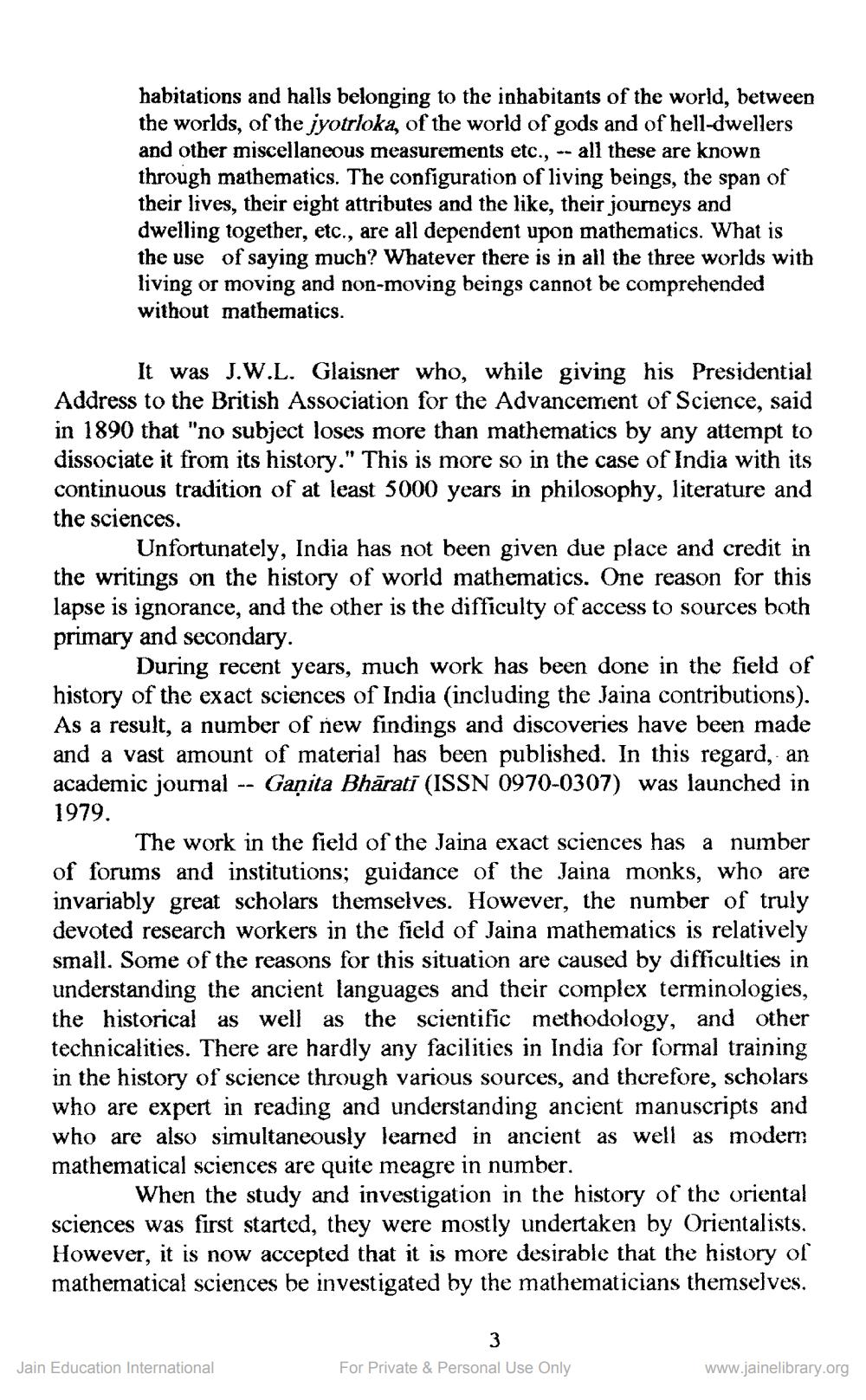Book Title: Jinamanjari 1999 04 No 19 Author(s): Jinamanjari Publisher: Canada Bramhi Jain Society Publication View full book textPage 5
________________ habitations and halls belonging to the inhabitants of the world, between the worlds, of the jyotrloka, of the world of gods and of hell-dwellers and other miscellaneous measurements etc., -- all these are known through mathematics. The configuration of living beings, the span of their lives, their eight attributes and the like, their journeys and dwelling together, etc., are all dependent upon mathematics. What is the use of saying much? Whatever there is in all the three worlds with living or moving and non-moving beings cannot be comprehended without mathematics. It was J.W.L. Glaisner who, while giving his Presidential Address to the British Association for the Advancement of Science, said in 1890 that "no subject loses more than mathematics by any attempt to dissociate it from its history." This is more so in the case of India with its continuous tradition of at least 5000 years in philosophy, literature and the sciences. Unfortunately, India has not been given due place and credit in the writings on the history of world mathematics. One reason for this lapse is ignorance, and the other is the difficulty of access to sources both primary and secondary. During recent years, much work has been done in the field of history of the exact sciences of India (including the Jaina contributions). As a result, a number of new findings and discoveries have been made and a vast amount of material has been published. In this regard, an academic journal -- Ganita Bhārati (ISSN 0970-0307) was launched in 1979. The work in the field of the Jaina exact sciences has a number of forums and institutions; guidance of the Jaina monks, who are invariably great scholars themselves. However, the number of truly devoted research workers in the field of Jaina mathematics is relatively small. Some of the reasons for this situation are caused by difficulties in understanding the ancient languages and their complex terminologies, the historical as well as the scientific methodology, and other technicalities. There are hardly any facilities in India for formal training in the history of science through various sources, and therefore, scholars who are expert in reading and understanding ancient manuscripts and who are also simultaneously learned in ancient as well as modern mathematical sciences are quite meagre in number. When the study and investigation in the history of the oriental sciences was first started, they were mostly undertaken by Orientalists. However, it is now accepted that it is more desirable that the history of mathematical sciences de investigated by the mathematicians themselves. Jain Education International For Private & Personal Use Only www.jainelibrary.orgPage Navigation
1 ... 3 4 5 6 7 8 9 10 11 12 13 14 15 16 17 18 19 20 21 22 23 24 25 26 27 28 29 30 31 32 33 34 35 36 37 38 39 40 41 42 43 44 45 46 47 48 49 50 51 52 ... 88
